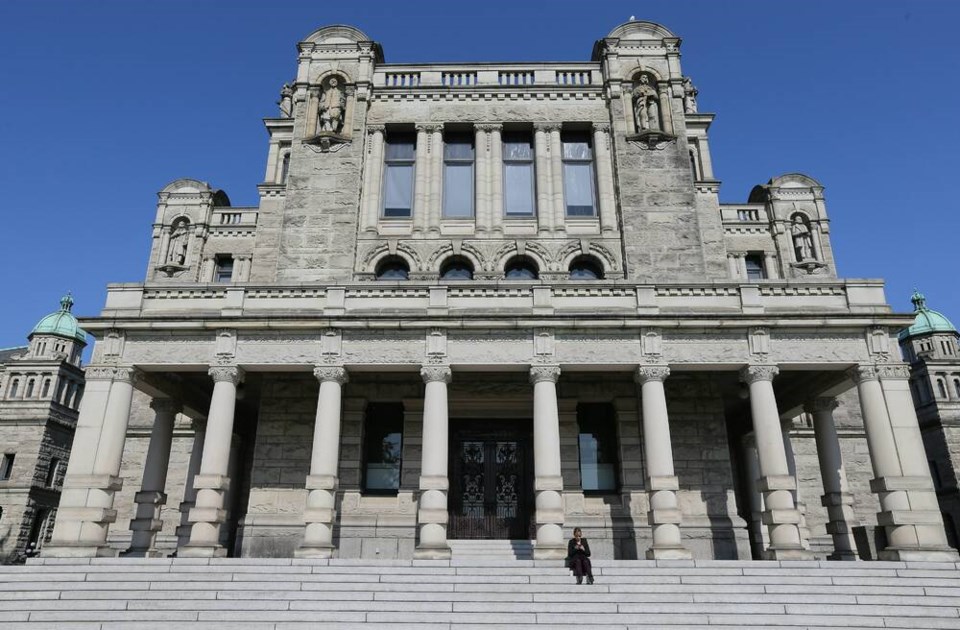The turmoil we’re seeing in provincial politics might boil down to a basic question: Where does loyalty to a party, or a party leader, come into decisions made by elected representatives?
History, in British Columbia and elsewhere, offers clues.
When the big tent parties began to break down in the 20th century, with the Co-operative Commonwealth Federation and then the New Democratic Party moving away from the Liberals, and Social Credit breaking from the Conservatives, parties implemented internal measures to strengthen loyalty. In the new and old parties, dissent was restricted and penalized.
Technological advances played another big role. When radio ruled the airwaves, leaders like Winston Churchill (short, stout and a cigar in his mug, with a good face for radio) and Franklin Delano Roosevelt (in a wheelchair throughout his presidency) could carry their nations.
After television arrived, party leaders had to be telegenic. John F. Kennedy was the first leader to take advantage of this with his vision of Camelot.
In the television age, candidates rode to power on the coattails of the party leader. They owed their constituency seat to the leader and centrally controlled TV advertising.
Independent candidates did not stand a chance. Elected representatives who defied their parties and ran as independents were punished by their parties and by voters, who rarely elected them again.
The common wisdom became, in simple terms: Run for the party, follow the leader, vote blindly for the party, and get re-elected.
Is that changing? Perhaps.
The Oct. 19 provincial election could be one of those rare watershed elections, like the ones in 1941, 1952, 1972, 1991 and 2017, when the status quo changed dramatically.
As BC United self-destructs, what should United MLAs do?
First, should they be loyal to the party?
They were elected as B.C. Liberals, but the party changed its name in a hamhanded attempt to appeal to Conservative voters in a centre-right coalition. One could argue that any loyalty these MLAs had to the B.C. Liberal party is gone if they believe the core principles of the party have changed along with the name.
Second, do they owe allegiance to the leader?
United Leader Kevin Falcon appears to be a large part of the problem, not the solution. His decisions led to a long-time colleague leaving the caucus. Under his stewardship the name change was mishandled. And his role as Opposition leader has been characterized more by lack of notice than any substantive presentation of a realistic alternative.
Most importantly, the United MLAs did not win election, or re-election, under Falcon’s leadership; Andrew Wilkinson was the party leader in the 2020 general election, when the party name was B.C. Liberal.
That party emerged from that election with fewer seats than it had before. The successful B.C. Liberal candidates won because of their own community recognition, not because of the Liberal name or Wilkinson’s efforts.
The remaining United MLAs need to decide how they can best continue to serve their constituents. They also need to decide where their loyalties lie – with their constituents, their party or their leader.
Convention calls for MLAs of any party to be loyal to their party and their leader.
But a few sitting MLAs might side with their constituents.
In the North and South Peace, other northern ridings, and the Interior, some could cross the floor to the Conservatives.
Some Lower Mainland candidates who see the real goal is to defeat the NDP, and don’t believe Falcon and the new party can do the job, could also join the Conservatives.
Decisions about crossing the floor, or not, cause personal anguish. They are not taken lightly. Recent comments by a United spokesperson, who said the decisions were about pensions, were highly inappropriate.
United MLAs wrestling with a decision about crossing to the Conservatives deserve our respect, no matter which path they choose.
The decisions of the few who defect could change the course of the election, and potentially make it one of those rare watershed elections.
Change can come quickly in B.C. politics. Don’t count anyone out, and don’t count anyone in. The only certainty is that it will be a long, interesting summer.
>>> To comment on this article, write a letter to the editor: [email protected]




